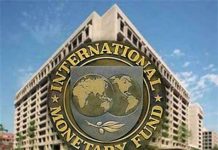Nigeria may have reached the crossroads in its elusive search for a workable economic model that can lead its overwhelming populace out of poverty – the kind of poverty that is both endemic and multi-dimensional. In fulfillment of his renewed hope agenda following the assumption of office, President Bola Ahmed Tinubu introduced a number of policy measures aimed at rebuilding the nation’s economy.
These included subsidy removal and foreign exchange rate unification, among others. Over the years, successive governments have always considered these two issues as a hard nut to crack. So, the World Bank, while commending the president for the courageous initiative, estimates that Nigeria will save N3.9 trillion in 2023, equivalent to 1.6 per cent of GDP, following petrol subsidy removal and foreign exchange unification.
“The recently undertaken PMS subsidy and FX reforms are historic, N3.9 trillion in savings in 2023 alone, stops Nigeria from going over a fiscal cliff and sets the stage for a new, upward investment, growth, and development trajectory,” Alex Sienaert, chief economist at World Bank Nigeria, said during the launch of the Nigeria Development Update for June 2023.
However, despite the optimism from both domestic and international financial agencies, the performance of the economy in the last three months of the administration has failed to inspire confidence among the stakeholders in the critical sectors.
The hardship of the subsidy removal, uptick in food inflation, as well as increase in poverty rate, have continued to raise questions as to whether the new policy enunciation is the right antidote for the economy.
Recently, in what appears to be a sudden twist, the IMF faulted the Central Bank of Nigeria (CBN) for its monetary policy, noting that its fight against rising inflation was ineffective. According to the latest report, an estimated four million Nigerians have been pushed into poverty in the first five months of 2023; as average prices of locally produced staples increased faster than average inflation. Much more alarming is the projection that over 7.1 million more people might be further thrown into the poverty net if there are no buffers to cushion the impact of these reforms.
In the wake of the new policy announcement, the Federal Government considered the option of compressed natural gas as a cheaper energy source, mass transit options, housing, and education as some of the measures that would mitigate the hardship of the subsidy removal. According to Wale Edun, the Minister of Finance and Coordinating Minister of the Economy, there is a fiscal dividend that state governors are beneficiaries to the tune of about N4 trillion cash dividend. Yet, the hardship of the removal has continued to draw more and more people into poverty as the inflation rate continues to rise.
To get out of the quagmire, therefore, the IMF has stressed the need for the apex bank to consider a reduction of its monetary policy rate to cushion the effect of inflationary pressure on households. It also advised the Federal Government to strengthen its fiscal policy through investment in critical sectors capable of putting the economy on a better path in the long term.
Resident representative of the IMF in Nigeria, Ari Aisen, said that the reforms were long overdue, but maintained that the macro-economic policies of the CBN needed to be tightened.
“It is natural that these policies have some side effects. We have seen inflation already high and it is likely to increase further. In our view, it will be difficult to tailor macro-economic policies to reduce inflation and achieve durable macrostability. The Central Bank has a key role in stabilising the economy and it will require a much tighter monetary position and stance than we currently see,” he said.
One of the arguments in support of a market-determined naira is the attraction of more foreign investors.
However, since the government floated the currency, the naira has plummeted to record lows against the dollar. The fixed rate, which used to be N450 per dollar, rose as high as over N800 per dollar. Floating the naira
immediately drove up the prices of imported goods and services, devastating small businesses and low-income households due to Nigeria’s import-dependent economy.
In view of the foregoing, a former Deputy Governor of the Central Bank, Tunde Lemo, has urged the apex bank to dump exchange rates unification, saying “the naira is not an internationally convertible currency and a gap of not more than N50 should not worry the apex bank.”
Lemo made this submission in a paper he delivered at the Lagos Business School recently. Though he commended the government for the courage to merge the rates, he stated that the gap had presented huge arbitrage opportunities.
He blamed the development on oil theft, dollar scarcity, capital control, and outstanding trade commodities, among others.
His words: “Unfortunately, dollar scarcity, oil theft, reserve level, previous actions of the CBN (too many rules), outstanding trade’s commodities, capital control, overdue swaps etc, have dried up liquidity. I advise that policymakers should jettison merging the two rates (the naira is not an internationally convertible currency). A gap of not more than N50 should not worry the CBN.”
He further noted some lapses in the current monetary policies, saying “low interest rate: This is very good to wish, but difficult to deliver in a high and rising inflation environment. Interest rates are high due to monetary and structural reasons and low interest cannot be delivered until we rein in inflation and address structural factors.”
Prof Segun Ajibola, reacting to the issues in a telephone conversation with Sunday Sun, maintained that monetary policy cannot address the challenge of inflation in isolation of other variables such as the cost of production, energy, power, imported raw materials, security, as well as multi-taxation.
He explained his position thus: “Inflation that is confronting Nigeria is not money supply-induced inflation. The Central Bank has been pursuing contractional policy. That is policies that will reduce demand for money and subsequently reduce aggregate demand for goods and services to bring the prices down. But that is not our problem. Our problem is cost-push inflation. Cost-push inflation arises from an increase in the overall cost of production, as well as the element of imported inflation because a lot of things that we consume in the country are imported.
“So, monetary policy alone cannot tackle that. What is leading to the high cost of production includes the cost of energy and power, cost of imported raw materials, cost of security, and multi-taxation. When you put all of these together, manufacturers will incur an increase in the cost of production and so the price of goods and services going into the market must of necessity go up.
“The landing cost of those things we import into the country has also increased because of the increase in the exchange rates and other charges. So, the retail prices also have to go up because the importers will not want to incur losses. And, of course, we already know the cause of food inflation. There are lots of challenges on the farm. Apart from the natural conditions like climate change, flooding, desertification, and so on, there is the problem of insecurity on the farm such as farmers/herdsmen clashes.
“There are equally perennial problems facing farmers. I am one of them. There is a high cost of running the farm because of the high cost of chemicals, herbicides, payment of workers’ salaries, feeding, and so on, making it difficult to operate farms profitably. When you put all of these together, you will see that the aspect coming from the monetary side is so insignificant. And that is why all the steps that have been taken do not have any serious impact on inflation. So, the challenges are more outside the monetary policy.
“There are policies that are fiscal; there are policies that are governmental. Everything must be addressed together if we want to address the challenges of inflation.”
Speaking also on the exchange rate unification, he added: “Unless and until we are able to curtail our import, and buy into the slogan of produce what we use and use what we produce, we will continue to expose the economy to the vulnerability of the foreign exchange market.
“Some of the things that will address the challenges of the economy are not things we can achieve overnight. To diversify the economy will take time. Other than the quick fixes that can happen now, until we are able to resolve permanently the imbalances in the various sectors of the economy, pressure will continue to be on foreign exchange rates.
“There is no economy of the world that will operate on a 40 per cent differential between official and the parallel market rates. It creates economic range. Some speculators and arbitragers will be taking advantage of it at the expense of the majority. That is the background to the unification. Having unified, we need to take other steps. We need to boost the supply of dollars into the economy. This will depend on what we can do quickly to increase the supply of dollars into the economy.
“There has been a lot of concentration on oil export, accounting for about 90 per cent of foreign exchange earnings. We have to look into some other things like non-oil exports, remittances, and direct foreign investments that can bring foreign exchange into the economy. With what the president is doing now, we will be able to boost the supply of dollars into the economy and help to achieve equilibrium in the market.”
To achieve the full realization of the ongoing reforms, however, he urged the government to put eyes on those who are responsible for the implementation at the various levels.
“Government comes up with policies and there are those responsible for implementing them. So, implementation must be faithfully done by those who are in charge of policy implementation at various levels. Government is right in rolling out those policies, but other layers should take the issue of implementation very seriously so that the end will justify the means.
“If we project based on efforts on the ground, then we can see that tomorrow looks much better than today as far as the economy is concerned. But we need those who will faithfully work with the political leadership to bring all those policies to fruition. The focus is okay, but let the action follow the plan. The government has the responsibility of ensuring that those in charge of implementation are put on their toes,” Ajibola advised.
Similarly, a former President of the Lagos Chamber of Commerce and Industry, Dr Muda Yusuf, expressing the same optimism said: “The policy offers hope for the future because that is the way to go.
“We may need to go very slowly, but that is the sustainable trajectory for economic management. But as we progress along that path, we need to continue to review the modalities and the strategies. We need to continue to monitor the impact of it on the citizens and possibly bring some mitigation measures.
“The reforms are inevitable, they are desirable, but we can continually tweak the strategy for the policy transition.”
However, based on the existing variables, he postulated that the outlook of the economy for the last quarter of the year might not be significantly different from the third quarter.
Instead, according to him, the positive impact of the reforms will begin to manifest in the first quarter of 2024.
“The last quarter of this year is not likely to be basically different from what we are going through now because some of the challenges of the moment will take some time. Before we can begin to see the benefits of the reforms, it may take the first quarter of next year. First, the foreign exchange is a major issue as we speak. And currently, there is nothing on the horizon to say that the situation will ease by the end of the year because we are still battling with liquidity challenges in the forex market.
“There is still a lot of pressure, a lot of demand to be met which has not been met. Until we are able to improve significantly on our oil production which is the shortest cut, the low-hanging fruit as far as this forex issue is concerned; there may not be any significant improvement. Then, of course, we are expecting foreign exchange to come in from foreign investors. That may also not happen immediately.
“Crude price is now around N95 per barrel. For as long as the crude oil price is that high, it will be difficult for energy prices to reduce especially those ones that have been deregulated. Even as we speak now, there is a lot of pressure that the price of PMS should go up because the subsidy is already returning. That challenge is still likely to remain. What can make the difference is if the government will be able to come up with more palliative to ease the hardship of the fuel prices. Again, before we can begin to see the result of that, it may be the first quarter of next year. So, generally, the outlook may not be significantly different from what we had in the third quarter.
“Already the government is slowing down on unification of foreign exchange rates. We cannot abandon it, but we can slow down on it given the challenges emerging from it. If the government had gone full blast on unification, you would not have seen the gap we are seeing now. By now, the official exchange rate would be N800, but it is still at N770. That means the government is already slowing down on unification just as they are slowing down on subsidy removal. The government is also sensitive to the effects of these on the citizens,” he said.
By Omoniyi Salaudeen










